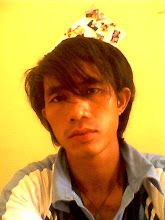Through his 16 Web sites, Phillip Rekdale offers commentary and critiques of corruption in education, as well as educational advice, tools and forums for teachers and students of all ages. Built in 1999, his site Perdidikan.net averages two million hits per month. (JG Photo/See Jie Yi) An Online Gift to Indonesia’s Pupils You know your ambitions are large when your aim is to single-handedly work against the corruption and negligence in Indonesia’s education system. But despite knowing the extent of the daunting task, an Australian man has been doing it for more than 10 years in his quest to improve the lot of the country’s teachers and students. “When my wife asks me, ‘If nobody cares, why do you care?’ I tell her, ‘Because I care for it,’ ” said Phillip Rekdale, who describes himself as a “western suburban guy from Melbourne.” The 61-year-old specializes in education technology, a field that studies how learning can be enhanced with the effective use of technology. His own preferred method of affecting change in Indonesia’s education system is through the Internet. His first Web site, created in 1999, catered to senior secondary school students. Called Pendidikan.net, (Education.net), the site has since expanded to encompass 16 different sites to meet the needs of students and teachers, including information about applying to universities, resources for language and communication practice and information on scholarships. All of these sites were set up, maintained and have been regularly updated out of Rekdale’s own pocket for the past 11 years. He is the sole administrator for all of them, and Pendidikan.net receives about two million hits a month. One of the problems Rekdale constantly addresses on his sites is the corruption and complacency that plagues educational progress in the country. “The education system in Indonesia is in many ways similar to rearranging the deck of chairs on the Titanic,” he said. “Everyone is kept busy as if they are doing something useful, but the ship is still going to sink anyway unless we start doing the right things.” This ship is going under, he said, because money that should have been spent on better maintenance of school buildings, manpower and other resources are leaking through “holes in the system.” On his site, Rekdale frequently posts articles on his sites and on his Facebook page that highlight ongoing corruption problems. He said he hopes to spur discussion and stimulate people to think about the “right” issues, such as lax standards in education curriculum, diverting of educational funds away from rural areas and poor wages for the country’s teachers. Rekdale also believes that universities here are not equipping their students with relevant skills. He cited a report by Media Indonesia that said there are more than 30,000 unemployed college graduates in Bekasi, West Java. “Students need to contextualize what they’ve learned with the real world,” he said. “I hope that this forum will contribute to more active learning in university and relate it back to the real world.” Some of his criticisms, such as the problems with computer-based teaching, are more controversial than others, stirring up heated discussions on his Web site and Facebook forums. But the arguments have also gained him some admirers. Ridowalynov Patilsson Sr., who recently graduated from the Indonesia University of Education in Bandung, is one of Rekdale’s 7,000 Facebook followers. He said he first stumbled upon Rekdale’s Web sites while working on his undergraduate final-year thesis. “Although his view can sometimes be very radical, it does not reduce my interest to at least read his articles once in a while,” he said in an e-mail interview. “Pendidikan.net is a very useful source for all readers, especially if you’re a teacher or a student like me. “For example, there are many articles that criticize government policies, but it does not only talk about what is wrong, but it always point to where should it go.” Rekdale first came to Indonesia in 1983 under the auspices of an Australian aid program. “When I first stepped on the tarmac of the old Halim Perdanakusuma airport, it immediately felt like home to me.” After five years of working to develop Indonesia’s education technology sector, he returned to Australia. But by 1998, he was back in the archipelago, working at the Ministry of Education. Seeing the lack of online educational resources for Indonesian students, the tech-savvy teacher created Pendidikan.net in 1999. “I was shocked that there was no proper forums for people to talk,” Rekdale said. “Many of the ‘discussions’ were not well-led, had no direction and were based on common understandings which were not necessarily correct. I wanted a platform where people were able to discuss topics in depth.” Over the years, Rekdale has created more than 150 Web sites, covering a range of topics apart from his educational work. He said he did not intentionally plan to shepherd an entire “education network” but it grew out of demand. Arief Rahman, an Indonesian education advocate who was jailed for his human-rights activism during the Suharto era and is a representative to Unesco’s International Bureau of Education, met Rekdale during a school development project at the Ministry of Education in 1998. “He has a humanistic and holistic approach to education,” Arief said. “He looks at learning not from a teacher-centered approach, but from a pupil-centered approach.” For all his time, effort and pennies poured into an apparently bottomless pit, Rekdale said it has all been worth it. “If I’m a Web site manager, I would have committed suicide 10 years ago,” he said. “But I’m an educator who is looking for change, that’s why I do it.” |
Jumat, 18 Februari 2011
An Online Gift to Indonesia’s Pupils
Langganan:
Posting Komentar (Atom)

Tidak ada komentar:
Posting Komentar